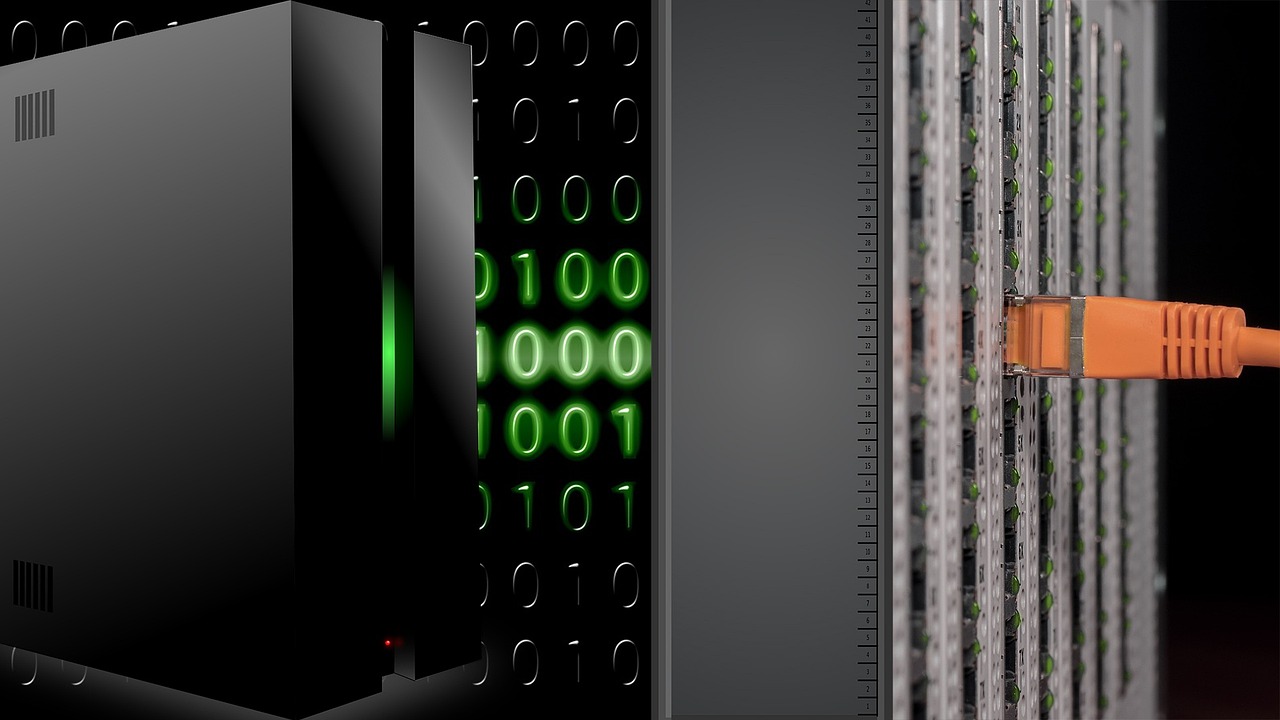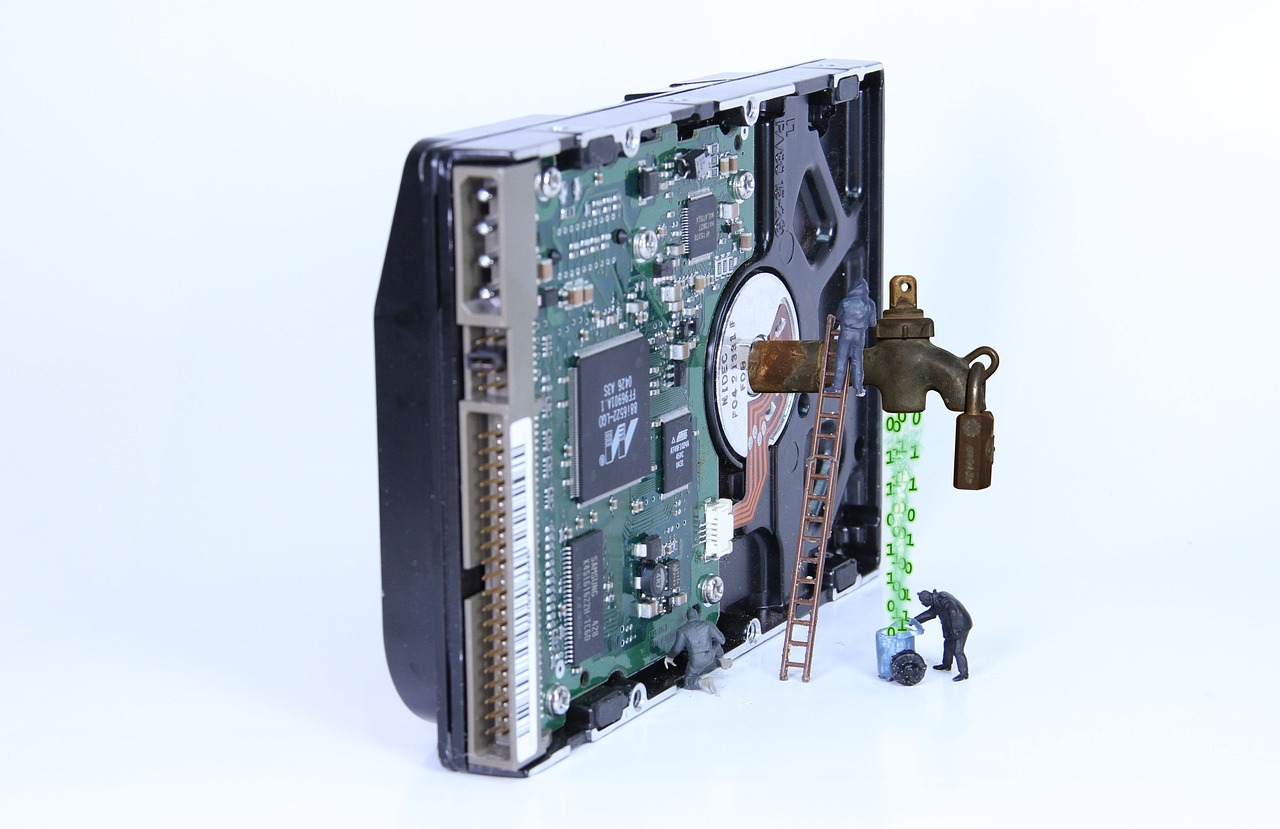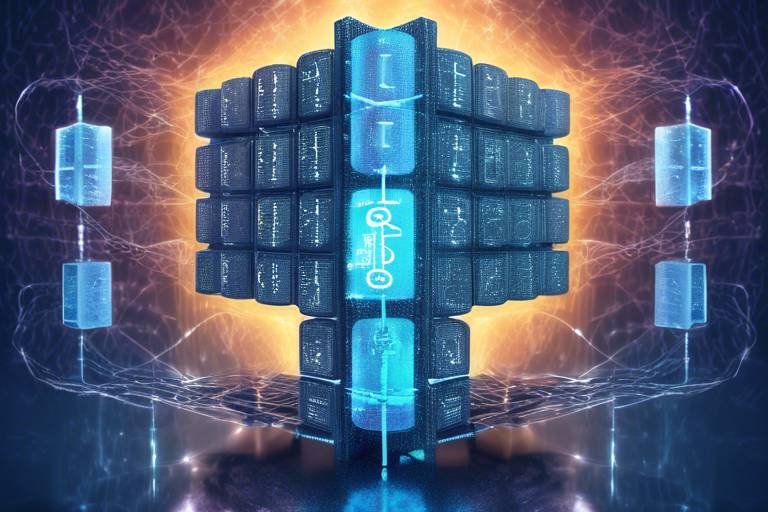NuCypher - Data Privacy on the Blockchain
In an increasingly digital world, where data breaches and privacy concerns are rampant, NuCypher emerges as a beacon of hope for individuals and organizations alike. This innovative platform is redefining how we approach data privacy within the realm of blockchain technology. By leveraging cutting-edge cryptographic techniques, NuCypher enables secure data sharing without compromising confidentiality. Imagine being able to share vital information with partners or clients while keeping it locked away from prying eyes—this is the promise that NuCypher delivers.
At its core, NuCypher’s mission is to empower users with the ability to control their data while participating in decentralized networks. With the rise of blockchain applications, the need for privacy-preserving solutions has never been more critical. NuCypher addresses this need head-on, offering a comprehensive architecture that combines key management systems and advanced encryption protocols to ensure that sensitive information remains protected.
But what does this mean for you? Whether you're a developer looking to integrate privacy features into your applications or a business seeking to comply with data protection regulations, NuCypher provides the tools necessary to navigate the complex landscape of data privacy. By utilizing NuCypher, organizations can confidently engage in secure data sharing, knowing that their information is shielded from unauthorized access.
As we delve deeper into the architecture of NuCypher, we’ll explore its core components, including key management systems and encryption protocols. We’ll also take a look at its various use cases across industries, highlighting how this innovative technology is transforming the way we think about data privacy. Join us as we uncover the potential of NuCypher to revolutionize data security in the blockchain space.
NuCypher's architecture is designed with a singular focus: to provide privacy-preserving solutions on blockchain networks. This section delves into its core components, including the key management system and encryption protocols that ensure data confidentiality. The architecture is not merely a technical structure; it represents a paradigm shift in how we handle sensitive information in decentralized environments.
The key management system is crucial for maintaining data privacy. Here, we explore how NuCypher manages cryptographic keys, ensuring secure access control while enabling users to share sensitive information without compromising security. This system acts like a digital vault, where only authorized users have access to the keys that unlock the data. By employing a decentralized approach, NuCypher eliminates single points of failure, making it significantly more resilient against attacks.
NuCypher employs advanced encryption protocols to protect data. This subsection discusses the specific algorithms used and how they contribute to the overall security framework of the platform. The encryption techniques are akin to a fortress, surrounding your data with layers of security that are difficult to penetrate.
Threshold encryption allows data to be encrypted in such a way that multiple parties must collaborate to decrypt it. This section highlights its significance in enhancing data security and privacy. Think of it like a secret code that can only be cracked when everyone who holds a piece of the key comes together. This collaborative approach ensures that no single entity can access sensitive information on their own, thereby enhancing security.
Proxy re-encryption enables secure data sharing without revealing the underlying data. Here, we examine how this technique works and its applications in decentralized networks. It’s like having a trusted intermediary who can pass along messages without ever seeing their contents. This method is particularly useful in scenarios where data needs to be shared across different platforms while maintaining privacy.
NuCypher's technology has various applications across industries. This section outlines specific use cases, showcasing how organizations leverage its privacy features for secure data sharing and compliance. From healthcare to finance, businesses are discovering innovative ways to utilize NuCypher's capabilities to protect sensitive data.
The DeFi sector is rapidly evolving, and NuCypher plays a pivotal role in enhancing privacy. This section discusses how its solutions address privacy concerns in financial transactions and smart contracts. As the DeFi landscape grows, so do the challenges related to user privacy and data security. NuCypher is at the forefront, providing solutions that ensure users can engage in financial activities without fear of exposure.
Privacy-preserving transactions are vital for user trust in DeFi. This subsection explores how NuCypher enables confidential transactions while maintaining transparency on the blockchain. Users can transact with peace of mind, knowing their financial activities are shielded from public scrutiny.
Smart contracts are foundational to DeFi, but they pose security risks. Here, we analyze how NuCypher's privacy solutions improve the security and reliability of smart contracts in decentralized applications. By integrating NuCypher’s technology, developers can create smart contracts that not only execute automatically but also protect sensitive data, thus enhancing overall trust in the system.
- What is NuCypher? NuCypher is a privacy-preserving platform that enables secure data sharing on blockchain networks.
- How does NuCypher ensure data privacy? Through advanced encryption protocols and a decentralized key management system.
- What industries can benefit from NuCypher? Industries such as finance, healthcare, and technology can leverage NuCypher for secure data sharing.
- What is threshold encryption? A method that requires multiple parties to collaborate to decrypt data, enhancing security.
- How does proxy re-encryption work? It allows secure data sharing without revealing the underlying data to unauthorized parties.

Understanding NuCypher's Architecture
NuCypher's architecture is a remarkable blend of cutting-edge technology and innovative design, tailored specifically to enhance data privacy within blockchain ecosystems. At its core, the architecture revolves around a robust key management system and sophisticated encryption protocols that work in harmony to ensure data confidentiality and integrity. Imagine a vault where only authorized individuals can access sensitive information, but with the added benefit of blockchain's decentralized nature—this is the essence of NuCypher.
The architecture can be broken down into several key components, each playing a vital role in the overall functionality:
- Key Management System: This is the backbone of NuCypher's privacy solutions, allowing users to create, manage, and share cryptographic keys securely.
- Encryption Protocols: Advanced algorithms are employed to encrypt data, ensuring that it remains confidential even in a public blockchain environment.
- Decentralized Network: NuCypher operates on a decentralized network of nodes, which not only enhances security but also ensures that no single entity has control over the data.
To further illustrate how these components work together, consider the following table that outlines the primary elements of NuCypher's architecture:
| Component | Description |
|---|---|
| Key Management System | Handles the creation and distribution of cryptographic keys for secure data access. |
| Encryption Protocols | Utilizes advanced algorithms to encrypt data, protecting it from unauthorized access. |
| Decentralized Network | A network of nodes that enhances security and prevents centralized control over data. |
One of the standout features of NuCypher’s architecture is its ability to support dynamic access control. This means that users can grant or revoke access to their data at any time without needing to re-encrypt it. It’s like having a key to your house that you can give to friends whenever they visit, but you can also take it back whenever you want—offering unprecedented flexibility and control over who gets to see your information.
Moreover, the architecture's design facilitates interoperability with various blockchain networks, making it a versatile solution for developers and organizations looking to enhance their privacy measures. This adaptability is crucial in a rapidly evolving space where new protocols and technologies emerge almost daily.
In summary, NuCypher's architecture is not just about protecting data; it's about creating an ecosystem where privacy is embedded into the very fabric of blockchain technology. By leveraging advanced cryptographic techniques and a decentralized approach, NuCypher is paving the way for a future where secure data sharing is not just a possibility, but a standard.

Key Management in NuCypher
When it comes to data privacy, the management of cryptographic keys is like the gatekeeper of a treasure chest. In the world of NuCypher, this gatekeeping is not just vital; it’s revolutionary. The key management system implemented by NuCypher ensures that sensitive information remains secure while allowing users to share it seamlessly. Imagine trying to unlock a safe with a combination; if you don't have the right keys, you can't access the valuables inside. This analogy perfectly encapsulates the importance of key management in safeguarding data.
NuCypher's approach to key management revolves around a few core principles that enhance security and usability. First off, it utilizes a decentralized network of nodes that are responsible for managing the cryptographic keys. This means that no single entity has control over the keys, which drastically reduces the risk of hacks and unauthorized access. Each node acts as a participant in a larger ecosystem, ensuring that the keys are distributed and managed in a way that promotes transparency and trust.
One of the standout features of NuCypher's key management system is its ability to facilitate secure access control. Users can define who has access to their data and under what conditions. This is crucial in scenarios where sensitive information must be shared among multiple parties without compromising its integrity. For instance, in healthcare, patient data can be shared with doctors while ensuring that only authorized personnel can view it. This level of control is not just a luxury; it's a necessity in today's data-driven world.
Moreover, NuCypher employs a process known as key rotation. This means that keys are regularly updated and changed to prevent any potential breaches. Think of it as changing your house locks periodically to ensure that former tenants or unauthorized individuals can't gain access. By frequently updating cryptographic keys, NuCypher fortifies its defenses against evolving threats, making it increasingly difficult for malicious actors to compromise data.
Additionally, the system supports delegated access, which allows users to grant temporary access to their data without having to share their keys directly. This feature is incredibly useful in collaborative environments, where multiple parties need to access the same information for a limited time. For example, a financial analyst might need access to sensitive financial reports for a short period to conduct an audit. With NuCypher, the analyst can be granted access without the need for permanent key sharing, maintaining a high level of security.
| Feature | Description |
|---|---|
| Decentralized Key Management | No single entity controls the keys, reducing risks. |
| Secure Access Control | Users can define who accesses their data and under what conditions. |
| Key Rotation | Regularly updating keys to prevent unauthorized access. |
| Delegated Access | Temporary access for users without sharing keys directly. |
In summary, NuCypher's key management system is a robust framework that addresses the complexities of data privacy in a decentralized world. By employing decentralized nodes, secure access control, key rotation, and delegated access, it empowers users to share sensitive information confidently. This innovative approach not only enhances security but also promotes a culture of trust and collaboration among users. As we move further into a digital future, the importance of such systems will only continue to grow.

Encryption Protocols
When it comes to securing data in the digital age, are the unsung heroes that work tirelessly behind the scenes. NuCypher employs a suite of advanced encryption techniques designed to protect sensitive information while ensuring that it remains accessible to authorized users. At the core of NuCypher's approach are two primary encryption methods: Threshold Encryption and Proxy Re-Encryption. Each of these techniques plays a crucial role in enhancing data security and privacy across various applications.
Let's start with Threshold Encryption. Imagine you have a treasure chest that requires multiple keys to unlock. This is the essence of threshold encryption, where data is encrypted in such a way that it can only be decrypted when a certain number of parties collaborate. This method not only strengthens security but also fosters a sense of trust among participants. For instance, if three out of five stakeholders need to access sensitive data, the encryption ensures that no single person can access the information alone. This collaborative approach significantly reduces the risk of unauthorized access, making it a game-changer for industries that require stringent data protection.
On the other hand, Proxy Re-Encryption takes a different approach. Think of it as a secure relay system for data. With proxy re-encryption, data can be shared between parties without revealing the actual content. Instead of transferring the original data, a proxy can re-encrypt the information for the recipient, allowing them to access it securely. This method is particularly beneficial in decentralized networks where privacy is paramount. By enabling secure data sharing while keeping the underlying data confidential, NuCypher ensures that sensitive information remains shielded from prying eyes.
To illustrate how these protocols work together, consider the following table that summarizes their key features:
| Encryption Protocol | Key Feature | Use Case |
|---|---|---|
| Threshold Encryption | Requires multiple keys for decryption | Collaborative data access among stakeholders |
| Proxy Re-Encryption | Allows secure data sharing without revealing content | Confidential transactions in decentralized networks |
Both of these encryption protocols not only enhance security but also pave the way for innovative applications across various sectors. From healthcare to finance, organizations can leverage NuCypher's encryption solutions to ensure compliance with regulations while maintaining user trust. As we move forward in an era where data privacy is more critical than ever, NuCypher stands at the forefront, providing the tools necessary to protect sensitive information in a decentralized world.
- What is NuCypher? NuCypher is a decentralized key management system that provides privacy-preserving solutions on blockchain networks.
- How does threshold encryption work? Threshold encryption requires multiple parties to collaborate in order to decrypt data, enhancing security and trust.
- What is proxy re-encryption? Proxy re-encryption allows secure sharing of data without revealing the underlying information, enabling confidential transactions.
- What industries can benefit from NuCypher? Industries such as healthcare, finance, and supply chain can leverage NuCypher's technology for secure data sharing and compliance.

Threshold Encryption
is a groundbreaking technique that significantly enhances data security and privacy by requiring multiple parties to collaborate in order to decrypt information. Imagine you have a treasure chest that can only be opened when three different keys are used together. This is the essence of threshold encryption—it divides the keys among several participants, making it nearly impossible for any single individual to access the data without the consent and cooperation of others.
This method not only fortifies the security of sensitive data but also fosters trust among users. For instance, in a healthcare setting, patient records can be encrypted using threshold encryption, with access keys distributed among healthcare providers. This ensures that no single provider can access the records without the agreement of others, thereby protecting patient privacy while still allowing for necessary collaboration. Moreover, it minimizes the risk of data breaches since the keys are not held by a single entity.
One of the most significant advantages of threshold encryption is its flexibility in various applications. It can be employed in scenarios such as:
- Collaborative Data Sharing: Multiple organizations can work together on sensitive projects without exposing their data to each other.
- Secure Voting Systems: In elections, threshold encryption can ensure that votes are counted only when a predetermined number of officials agree, enhancing the integrity of the voting process.
- Financial Transactions: In finance, it can protect transaction data, requiring multiple approvals before any sensitive information is revealed.
Furthermore, the implementation of threshold encryption can lead to a significant reduction in the risks associated with data leaks. By ensuring that no single point of failure exists, organizations can safeguard their data against unauthorized access. This is particularly crucial in industries that handle sensitive information, such as finance, healthcare, and legal sectors.
In summary, threshold encryption is not just a technical advancement; it represents a paradigm shift in how we think about data security. By requiring collaboration among multiple parties, it enhances privacy and builds a more secure environment for data sharing. As we continue to navigate the complexities of the digital world, adopting such innovative solutions will be essential for protecting our most sensitive information.
What is threshold encryption?
Threshold encryption is a cryptographic method that allows data to be encrypted in such a way that multiple parties must collaborate to decrypt it, enhancing security by preventing any single entity from accessing the data alone.
How does threshold encryption enhance data privacy?
By distributing the decryption keys among several participants, threshold encryption ensures that no single person can access sensitive information without the consent of others, thereby fostering trust and collaboration.
In what industries can threshold encryption be applied?
Threshold encryption can be applied in various industries, including healthcare, finance, and legal sectors, where protecting sensitive data is crucial.
What are the benefits of using threshold encryption?
The benefits include enhanced data security, reduced risk of data breaches, increased trust among users, and the ability to facilitate secure collaborative projects.

Proxy Re-Encryption
When we talk about data sharing in a decentralized environment, privacy is often the elephant in the room. How can we share sensitive information without exposing it to prying eyes? Enter Proxy Re-Encryption (PRE), a groundbreaking technique that allows data to be shared securely while keeping its contents private. Imagine sending a letter in a sealed envelope. The recipient can read the letter, but what if you want to forward that letter to someone else without revealing its contents? PRE works much like this, providing a way to share encrypted data without ever needing to decrypt it.
In essence, Proxy Re-Encryption allows a trusted intermediary, or proxy, to transform the encryption of a message from one user to another. This means that the original sender can grant access to the encrypted data without needing to share their private keys or decrypt the data. It's a bit like giving someone a special key that only works for a specific lock without ever handing over the actual key itself. This method not only enhances security but also fosters a culture of trust among users in decentralized networks.
One of the most exciting aspects of Proxy Re-Encryption is its versatility across various applications. Here are a few key areas where this technology shines:
- Data Sharing in Healthcare: Imagine a scenario where patient data needs to be shared between doctors and specialists. With PRE, sensitive health information can be shared without compromising patient confidentiality.
- Financial Transactions: In the world of finance, sharing data securely is paramount. PRE allows institutions to share transaction details without exposing sensitive financial information.
- Decentralized Applications (dApps): Developers can utilize PRE to enable secure data sharing among users without revealing their identities or personal information.
Furthermore, the implications of Proxy Re-Encryption extend beyond just security. By allowing data to be shared without revealing its content, it opens up new avenues for collaboration and innovation. For instance, in a decentralized finance (DeFi) setting, users can interact with smart contracts without worrying about their transaction details being exposed. This not only enhances user confidence but also promotes a more vibrant ecosystem where privacy and transparency coexist.
However, it's essential to understand that while Proxy Re-Encryption offers significant advantages, it also comes with its challenges. The complexity of managing keys and ensuring that the proxy remains trustworthy can be daunting. Users must be aware of the risks involved and take necessary precautions to safeguard their data. Nevertheless, as technology continues to evolve, the potential for PRE to revolutionize the way we think about data privacy in decentralized environments is immense.
In summary, Proxy Re-Encryption is a powerful tool that addresses one of the most pressing challenges in data sharing today. It allows for secure, private transactions that can transform industries and enhance user trust. As we move towards a more decentralized future, embracing technologies like PRE could be the key to unlocking a new era of data privacy and security.

Use Cases of NuCypher
NuCypher's innovative technology has opened the door to a wide array of use cases across various industries, fundamentally transforming how organizations handle sensitive data. With the increasing importance of data privacy, the demand for secure data sharing solutions is at an all-time high. NuCypher addresses this need by providing robust privacy features that empower organizations to share and manage data securely without sacrificing confidentiality. Whether it’s in healthcare, finance, or even supply chain management, the potential applications are vast and varied.
In the healthcare sector, for instance, patient data is highly sensitive and must be protected at all costs. NuCypher allows healthcare providers to share patient information securely with researchers or other medical professionals while ensuring that the data remains confidential. This capability not only facilitates groundbreaking research but also complies with stringent regulations like HIPAA. Imagine a scenario where a medical researcher can access anonymized patient data without ever seeing the actual identifiers. This is the kind of transformation NuCypher enables.
Moreover, in the financial industry, NuCypher plays a critical role in enhancing privacy for transactions. Financial institutions can utilize NuCypher’s technology to conduct secure transactions while keeping sensitive information hidden from unauthorized parties. This is especially important in a world where data breaches are rampant. By employing NuCypher’s privacy-preserving techniques, banks and financial institutions can instill greater trust among their customers, knowing that their financial data is protected.
Another fascinating application is in the realm of decentralized finance (DeFi). With the rise of DeFi platforms, the need for privacy has become paramount. NuCypher enables users to engage in privacy-preserving transactions, ensuring that while the transaction is recorded on the blockchain, the details remain confidential. This is particularly beneficial for high-value transactions where revealing the amount or the parties involved could lead to targeted attacks or unwanted scrutiny.
To illustrate the diverse applications of NuCypher, here’s a brief overview of some key use cases:
| Industry | Use Case | Benefits |
|---|---|---|
| Healthcare | Secure data sharing for research | Compliance with regulations, enhanced research capabilities |
| Finance | Privacy-preserving transactions | Increased customer trust, reduced fraud risks |
| DeFi | Confidential smart contracts | Enhanced security and privacy for users |
| Supply Chain | Secure sharing of sensitive logistics data | Improved transparency, reduced risk of data leaks |
As we can see, NuCypher's technology is not just a theoretical concept; it has real-world implications that can significantly enhance privacy and security across multiple sectors. Organizations are increasingly recognizing the value of protecting sensitive data, and NuCypher provides the tools necessary to do just that. The future of data sharing is here, and it’s more secure than ever.
- What is NuCypher? NuCypher is a privacy layer for blockchain networks that enables secure data sharing and management through advanced encryption techniques.
- How does NuCypher ensure data privacy? NuCypher employs encryption protocols and a key management system that allows users to share sensitive information securely without compromising data confidentiality.
- What industries can benefit from NuCypher? NuCypher can be applied in various industries, including healthcare, finance, decentralized finance (DeFi), and supply chain management.
- What are proxy re-encryption and threshold encryption? Proxy re-encryption allows data sharing without revealing the underlying data, while threshold encryption requires multiple parties to collaborate to decrypt data, enhancing security.

Impact on Decentralized Finance (DeFi)
Decentralized Finance, or DeFi, is revolutionizing the financial landscape, creating a new paradigm where traditional financial intermediaries are replaced by blockchain technology. In this rapidly evolving sector, privacy has become a critical concern that can either make or break user trust. This is where NuCypher steps in, providing innovative solutions that enhance privacy while maintaining the transparency that blockchain is known for. By integrating NuCypher's privacy-preserving technologies, DeFi platforms can offer users a secure environment for their transactions, ensuring that sensitive information remains confidential.
One of the primary challenges in DeFi is the need for privacy-preserving transactions. Users want to engage in financial activities without the fear of their transaction history being publicly accessible. NuCypher addresses this issue head-on by enabling confidential transactions that keep user data hidden while still allowing the necessary transparency inherent in blockchain systems. Imagine a world where you can trade assets without exposing your entire financial portfolio to everyone on the network—this is the future that NuCypher is helping to create.
Moreover, the security of smart contracts is paramount in the DeFi ecosystem. These self-executing contracts are foundational to decentralized applications, but they come with their own set of vulnerabilities. By utilizing NuCypher's privacy solutions, developers can enhance the reliability and security of their smart contracts. This means that sensitive data can be processed without exposing it to potential attackers, thus safeguarding both the contracts and the users involved. In essence, NuCypher acts as a shield, allowing developers to build robust applications that prioritize user privacy.
To illustrate the impact of NuCypher on DeFi, consider the following table that summarizes key benefits:
| Benefit | Description |
|---|---|
| Enhanced Privacy | Protects transaction details and user data from public exposure. |
| Increased Trust | Users feel more secure knowing their financial activities are private. |
| Improved Security | Reduces the risk of data breaches and unauthorized access. |
| Compliance | Helps projects meet regulatory standards while maintaining user privacy. |
In conclusion, the impact of NuCypher on the DeFi sector cannot be overstated. By providing essential privacy features, it enables users to transact confidently and securely, fostering a more trustworthy environment for decentralized finance. As the DeFi landscape continues to grow, the demand for privacy-preserving solutions will only increase, making NuCypher an invaluable player in this space.
- What is NuCypher? NuCypher is a privacy layer for decentralized networks that provides encryption and key management solutions.
- How does NuCypher enhance privacy in DeFi? It enables confidential transactions and protects sensitive data in smart contracts.
- Why is privacy important in decentralized finance? Privacy builds trust among users, allowing them to engage in financial activities without fear of exposure.
- What are the key technologies used by NuCypher? NuCypher utilizes threshold encryption and proxy re-encryption to secure data sharing.

Privacy-Preserving Transactions
In the ever-evolving landscape of decentralized finance (DeFi), have emerged as a cornerstone for fostering user trust. Imagine walking into a bank where your financial details are shared openly with everyone; the thought alone is unsettling! Similarly, in the world of blockchain, transparency is vital, but it shouldn't come at the cost of user privacy. NuCypher steps in as a game-changer, allowing users to engage in transactions without exposing their sensitive information to prying eyes.
At the heart of NuCypher's approach is its innovative use of cryptographic techniques that ensure transactions remain confidential while still being verifiable on the blockchain. This duality is crucial; it allows users to maintain their privacy without sacrificing the integrity of the transaction itself. For instance, when a user makes a transaction, the details are encrypted in such a way that only the intended recipient can access them. This is akin to sending a locked box through the mail, where only the recipient has the key to open it.
Furthermore, NuCypher employs a unique mechanism called proxy re-encryption, which allows data to be shared securely without revealing the underlying content. This means that even if a third-party service is involved in the transaction, they cannot access the sensitive data being exchanged. Consider it as having a trusted courier who can deliver your message without ever reading it. This technique not only enhances privacy but also significantly reduces the risks associated with data breaches.
To illustrate the importance of privacy-preserving transactions, let’s consider a few scenarios where NuCypher's technology could be a game-changer:
- Healthcare Sector: In healthcare, patient data is highly sensitive. With NuCypher, medical professionals can share patient information securely without compromising privacy, ensuring compliance with regulations like HIPAA.
- Financial Services: For financial institutions, maintaining client confidentiality is paramount. NuCypher enables banks to conduct transactions without exposing customer data, thus enhancing trust and compliance.
- Supply Chain Management: In supply chains, parties often need to share sensitive information. NuCypher allows for secure sharing between manufacturers and retailers, ensuring that proprietary data remains confidential.
In conclusion, the significance of privacy-preserving transactions cannot be overstated. As more individuals and organizations turn to blockchain technology for their financial needs, solutions like NuCypher will play a pivotal role in ensuring that privacy and transparency coexist harmoniously. With its robust encryption protocols and innovative techniques, NuCypher not only protects sensitive data but also empowers users to engage in decentralized finance confidently.
- What are privacy-preserving transactions?
Privacy-preserving transactions are transactions that maintain the confidentiality of the participants and the details involved while still being verifiable on the blockchain. - How does NuCypher enhance transaction privacy?
NuCypher enhances transaction privacy through advanced cryptographic techniques such as proxy re-encryption, allowing data to be shared securely without revealing sensitive information. - Why is privacy important in DeFi?
Privacy is crucial in DeFi to build user trust, protect sensitive financial information, and comply with regulations, ensuring a secure environment for all participants.

Smart Contract Security
Smart contracts are often hailed as the backbone of decentralized finance (DeFi), but with great power comes great responsibility. These self-executing contracts, which run on blockchain technology, can automate complex processes and eliminate the need for intermediaries. However, they also introduce a range of security risks that can jeopardize user trust and financial integrity. Imagine a house without locks; that's how vulnerable a poorly designed smart contract can be. This is where NuCypher steps in to bolster the security of smart contracts, ensuring that they operate as intended without exposing sensitive data.
At the core of NuCypher's approach to smart contract security is its innovative key management and encryption solutions. By implementing these technologies, NuCypher allows developers to create smart contracts that not only execute transactions but also maintain confidentiality. This means that while the contract executes on the blockchain, the details of the transaction can remain hidden from prying eyes, protecting sensitive information. It's like sending a sealed envelope instead of a postcard—only the intended recipient can read the contents.
One of the standout features of NuCypher is its ability to facilitate proxy re-encryption. This technique allows data to be encrypted in such a way that it can be shared securely among multiple parties without revealing the underlying information. For instance, in a decentralized application (dApp) where user data is involved, proxy re-encryption ensures that only authorized users can access specific data while keeping it hidden from others. This functionality is crucial for maintaining user privacy and trust, especially in financial applications where data breaches can have serious repercussions.
Moreover, NuCypher's threshold encryption adds another layer of security to smart contracts. With threshold encryption, sensitive data is split into multiple parts, and a certain number of parties must collaborate to decrypt it. This means that no single entity has full control over the data, significantly reducing the risk of malicious attacks or data leaks. Imagine a vault that requires several keys to open; it’s a powerful deterrent against unauthorized access.
To illustrate how NuCypher enhances smart contract security, consider the following table that outlines key security features:
| Feature | Description |
|---|---|
| Proxy Re-Encryption | Enables secure data sharing without revealing the underlying data to unauthorized parties. |
| Threshold Encryption | Requires multiple parties to collaborate to decrypt sensitive data, reducing the risk of data breaches. |
| Key Management | Ensures that cryptographic keys are securely managed, allowing for controlled access to sensitive information. |
In conclusion, the integration of NuCypher's privacy solutions into smart contracts not only enhances their security but also fosters a more trustworthy environment for users. As the DeFi landscape continues to evolve, the need for robust security measures will only grow. By leveraging advanced encryption techniques and innovative key management systems, NuCypher is paving the way for a future where smart contracts can operate securely and efficiently, ensuring that users can engage in decentralized finance with confidence.
- What is NuCypher? NuCypher is a privacy layer for decentralized applications that provides encryption and access control solutions to protect sensitive data on the blockchain.
- How does proxy re-encryption work? Proxy re-encryption allows a third party to transform ciphertexts so that they can be decrypted by another user without revealing the plaintext data.
- What is threshold encryption? Threshold encryption is a method where data is divided into parts, and a minimum number of parties must collaborate to decrypt the information, enhancing security.
Frequently Asked Questions
- What is NuCypher?
NuCypher is a decentralized encryption service that provides privacy-preserving solutions for data sharing on blockchain networks. It allows users to share sensitive information securely without compromising data confidentiality.
- How does NuCypher ensure data privacy?
NuCypher employs advanced encryption protocols, including threshold encryption and proxy re-encryption, to maintain data privacy. This means that data can only be decrypted when multiple parties collaborate, ensuring that sensitive information remains secure.
- What is threshold encryption?
Threshold encryption is a technique that allows data to be encrypted in such a way that it requires a specific number of parties to come together to decrypt it. This enhances security by distributing the decryption responsibility across multiple users.
- What is proxy re-encryption?
Proxy re-encryption is a method that enables secure data sharing without exposing the actual data. It allows a proxy to transform ciphertext from one user into ciphertext for another user, maintaining confidentiality throughout the process.
- Can NuCypher be used in decentralized finance (DeFi)?
Absolutely! NuCypher plays a crucial role in DeFi by enhancing privacy for transactions and smart contracts. It helps ensure that user data remains confidential while still being able to leverage blockchain transparency.
- How does NuCypher improve smart contract security?
NuCypher improves smart contract security by providing privacy solutions that protect sensitive data involved in smart contracts. This reduces the risk of exposing confidential information and enhances the overall reliability of decentralized applications.
- What industries can benefit from NuCypher's technology?
NuCypher's technology can benefit various industries, including finance, healthcare, and supply chain management, by enabling secure data sharing and compliance with data protection regulations.
- Is NuCypher open source?
Yes, NuCypher is an open-source project, which means that its code is publicly available for anyone to review, contribute to, or use in their own applications. This fosters transparency and community collaboration.
- How can I get started with NuCypher?
You can get started with NuCypher by visiting their official website and exploring their documentation. They provide resources and guides to help you understand how to implement their privacy solutions in your projects.



















